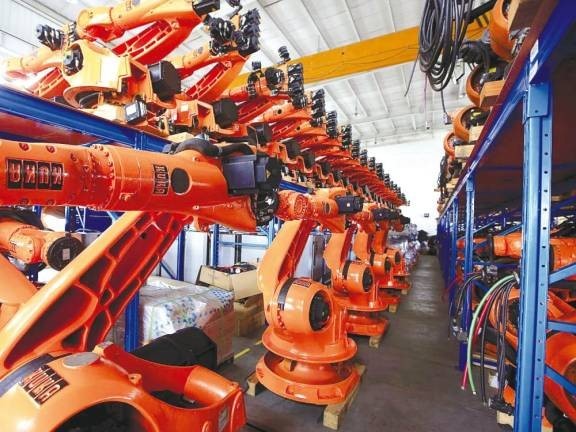
PETALING JAYA: Many jobs lost during the Covid-19 pandemic may not be refilled when the economy reopens, even when the population is fully vaccinated, because of the much-changed employment landscape in the new norm.
The shift to remote working, digitalisation, and automation of some occupations in industries such as hospitality, leisure, food and beverage may curtail labour demand in these areas, according to Malaysian Employers Federation president Datuk Dr Syed Hussain Syed Husman.
“Many employers implemented automation and artificial intelligence (AI) in warehouses, grocery stores, call centres, and manufacturing plants to reduce workplace density and cope with surges in demand. As such, jobs in delivery, warehousing, and transportation may increase as a result of the growth in e-commerce and the delivery economy,” he told SunBiz.
He said employers learned that they can operate and do more with fewer employees as they optimise costs and automate jobs to remain competitive.
“Digitalisation and its transformation will change the structure of work and resources. Digitalisation and more investment in automation and technology will also change the landscape of doing business. The physical location will partly change into virtual offices, hybrid physical workplaces, and virtual offices.”
Syed Hussain cited the World Economic Forum Future of Jobs 2020 survey, which indicated roles are being displaced by new technologies, such as data entry clerk, administrative and executive secretaries, accounting clerk, bookkeeping and payroll clerk, accountant and auditors, assembly and factory workers, as well as business services and administrative managers.
The survey indicated that the growing demand is in roles related to big data, digitalisation, and robotics for professions such as data analyst, data scientist, artificial intelligence expert, machine learning specialist, robotic engineers, software and application developers, and digital transformation specialist.
“Job roles such as process automation specialist, information security analyst, and Internet of Things specialist, have newly emerged in rising demand from employers. The demand represents the growth of robotics as well as the revival of cybersecurity threats,” said Syed Hussain.
SME Association of Malaysia president Datuk Michael Kang said small and medium enterprises (SME) have reduced or completely removed job functionssuch as those related to front desk, accounting, administration, and sales.
He said many SMEs have switched to online businesses due to the pandemic and payments are made in advance using e-wallets, bank transfer, or other types of digital payment methods. Thus, they restructured the workflow.
“Companies have moved business functions to cloud computing, for example, accounting is outsourced and some businesses hire part-time accountants who work remotely. Some SMEs used to have 20 staff in the accounting department but now have reduced to five.
“Manufacturers have automated production to reduce the number of employees because the hiring of foreign labour is halted due to the pandemic. Many manufacturers have automated labour-intensive production processes.
“Most of our members are using AI to facilitate the manufacturing process, AI helps organisations to design products and to embark on the Fourth Industrial Revolution (IR 4.0).
From receiving orders to procurement, the whole process is automated. They are using smart technology to trace order, to produce or procure, and to deliver to customers,“ Kang said.
He said the IR 4.0’s adoption is to ensure business continuation should another pandemic happen.
“At the initial stage, usually in the first and second year, it is costly to go for automation. But in the long run, it saves more, depending on the industry, the operational cost can save between 20% to 50%. Also, it improves productivity and commits to the delivery schedule.
“Previously, companies put their servers in the office, now they are using cloud servers or virtual servers. Indeed, automation saves labour costs and improves productivity. Also, employee reduction leads to fewer problems caused by human behaviours,” Kang said.
Anbound Research Center (Malaysia) head of global development programme and senior consulting fellow Yi Wang said as occupations are replaced by automation and AI, it may lead to serious structural unemployment.
He said it will be necessary for workers in the occupations most heavily hit to reinvent and upskill to move into new occupations.
Source: https://www.thesundaily.my/business/many-job-losses-during-covid-19-pandemic-likely-permanent-NY8274249

